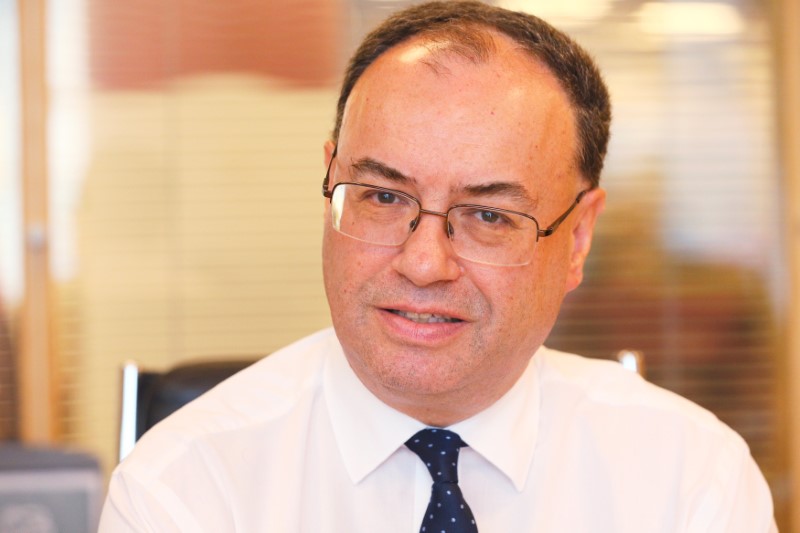 © Reuters. Andrew Bailey, chief executive of the Financial Conduct Authority, speaks at his office in London
© Reuters. Andrew Bailey, chief executive of the Financial Conduct Authority, speaks at his office in LondonBy Huw Jones
LONDON (Reuters) – The long-established practice of funds in one country being run by managers based in another works well and no changes are needed, Britain’s top markets regulator said on Tuesday in a swipe at European Union plans that have also been criticized by the sector.
Britain is home to about a third of assets under management in the EU, with around 8 trillion pounds in assets. Investment managers in Britain manage just over a trillion pounds on behalf of overseas authorized funds, mostly listed in Luxembourg or Dublin.
“This requires co-operative arrangements which are well established,” Financial Conduct Authority Chief Executive Andrew Bailey told the Investment Association annual dinner in London on Tuesday.
“Let’s not beat about the bush, this model works – it works well for investors and for investment managers. So, why disrupt it, or put another way, must it be disrupted?”
The bloc’s markets watchdog, the European Securities and Markets Authority (ESMA), has issued guidance for national regulators receiving licence requests from asset management firms in London wanting to open hubs in the bloc after Britain leaves the EU in 2019.
The guidance says that such hubs must have “substance”, meaning they should employ senior staff and not be just “letter box” entities with all big decisions taken back in London.
Asset managers see this as disrupting the cross-border operation of funds, also known as delegation, a principle applied across the world, with asset managers in the United States and Asia running funds in the EU.
Bailey said the FCA was not the only regulator asking this question – supervisors in Luxembourg have also stated that existing EU rules on delegation were already strict and no further strengthening of them is necessary.
“Does it require membership of the EU to make this system work? No, it does not,” Bailey said.
“We are ready to roll our sleeves up and continue to make open markets work effectively.”
Meanwhile, the FCA is putting pressure on asset managers in Britain to show on an annual basis how they are giving investors “value for money”, including greater transparency on fees and performance objectives.
The watchdog is working on a common fee “template” that funds would complete.
“And we want to continue the dialogue on value for money, and on what questions we should all be asking to assess whether what’s being delivered does represent good value,” Bailey said.
“We do not, for instance, want to incentivize short termism or fail to recognize the value of effective stewardship.”
Separately on Tuesday, ESMA announced that it too was starting a broad study into costs and fees charged by EU regulated mutual funds known as UCITS. [nL8N1MS1TJ]
Fusion Media or anyone involved with Fusion Media will not accept any liability for loss or damage as a result of reliance on the information including data, quotes, charts and buy/sell signals contained within this website. Please be fully informed regarding the risks and costs associated with trading the financial markets, it is one of the riskiest investment forms possible.
Source: Investing.com



























